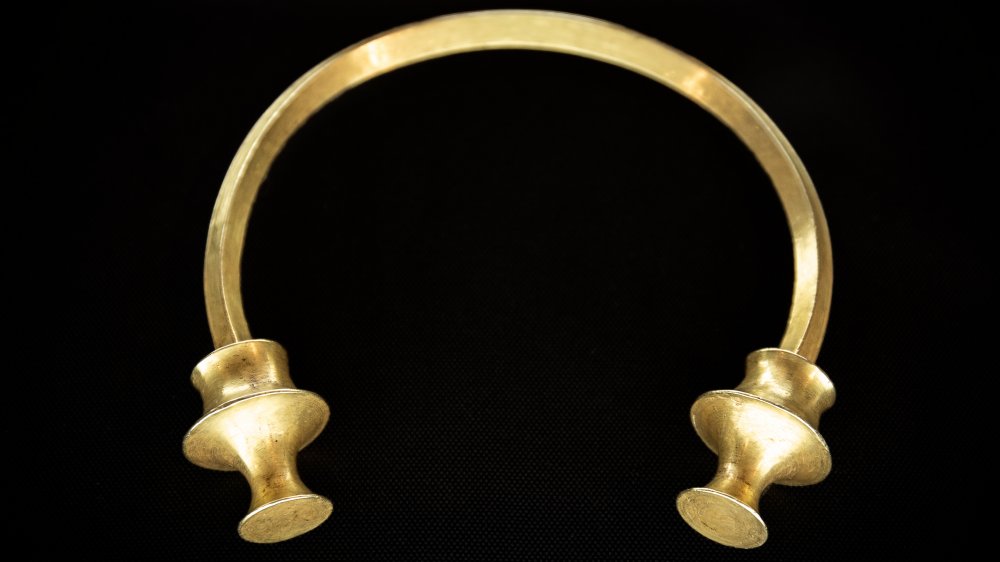Things The Ancient Celts Couldn't Live Without
The ancient Celts, who occupied much of what would become England, Scotland, and Wales, have a rich history. Much of what comprised their daily life is still a mystery, though, particularly how they lived before the Romans arrived on their lands.
Prior to the Roman conquest, ancient Celts thrived on crafting, according to LocalHistories.org. They were skilled blacksmiths and bronze smiths, jewelry makers, carpenters, leather workers, and potters, but it was in metalwork that they shined: pieces of iron used to be their form of currency, before gold coins. They bartered with the rest of Europe, bringing in copper, tin, and iron in exchange for their wool, cloth, and grains.
Metal also meant the ability to make weapons. Histouries UK explains the Celts loved war. There was little harmony between the different tribes, and each tribe built forts atop hills to protect themselves against encroaching invaders. With the metal, they could make weapons, helmets, and chain mail. Some Celtic warriors took great pride in how they looked in battle, and they carried with them gleaming golden shields and breastplates. Even everyday clothing had smatterings of metal. They wore belts made of bronze rings, and used bronze mirrors to check their appearance.
The Celts were also farmers
When they weren't fighting, the Celts were farmers. They raised animals and grew crops in rectangular fields, per LocalHistories.org. Once harvested, the grains were then kept in pits, lined with stone and clay. For both sustenance and sport, Celts often hunted game. They would ride their horses and run after wild boars. When the Celts wanted to pass the time — and were not at war — it seems that they played board games or held chariot races.
However, as much as Celts held metal armor and jewelry in high regard, these items of value were sometimes sacrificed. Celtic priests, called druids, would at times throw these valuable items into lakes and rivers. Druids were political advisors, teachers, and healers, and it was them who held Celtic culture together. Druids sometimes demanded that people to be buried with their material possessions, in the belief that these tiems would help them in the afterlife.
Unfortunately, after the forces of Rome invaded, the Celts lost control of their lands. Devoid of unity, the Celtic tribes never came together to fight against this foe. Nonetheless, Celtic culture has endured, and traces of it can still be found throughout England and Scotland.

